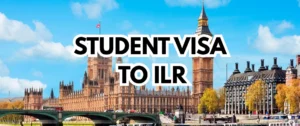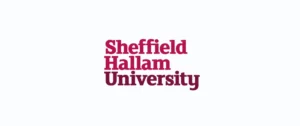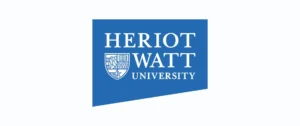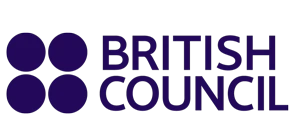For international students aiming to study in the UK in 2025, demonstrating proof of financial support is a critical step in both securing university admission and obtaining a Student Visa. This process involves proving you have sufficient funds to cover tuition fees and living costs, reassuring universities and the UK government that you can support yourself without relying on public funds. The financial proof must be presented in two distinct stages: first, to the university to obtain a Confirmation of Acceptance for Studies (CAS), and second, to the UK embassy for visa approval. Mistakes in this process can lead to application rejections or visa refusals, making accuracy essential. This guide provides a detailed, up-to-date roadmap to prepare your financial documents, drawing on official sources like the UK government and university guidelines.
Why Proof of Financial Support Matters
Proof of financial support proves your ability to pay for your studies and living expenses in the UK. Universities require this to issue a CAS, a mandatory document for your visa application. The UK Home Office then verifies your financial capacity to ensure you meet Student Visa requirements. Failing to provide clear, valid proof at either stage can delay your admission or result in visa rejection. The process is stringent, with specific rules on fund amounts, account duration, and document formats, so careful preparation is vital.
The Two-Stage Process: University and Embassy
Preparing proof of financial support involves two key stages, each with distinct requirements:
-
University Stage: Before issuing a CAS, universities need evidence that you can cover tuition fees and living costs. This ensures you’re financially prepared for your studies.
-
Embassy Stage: For the Student Visa, the UK Home Office requires proof of funds to confirm that you can support yourself throughout your course, per immigration rules. (It needs a consultant with a Level 1 immigration lawyer)
Both stages demand similar documents, but the embassy’s requirements are more formal and strictly regulated. Below, we outline how to prepare for each stage.
Step-by-Step Guide to Preparing Proof of Financial Support

1. Understand the Required Amounts
The amount you need to show depends on your course, university, and location in the UK. As of 2025, the UK Home Office sets the following guidelines for Student Visa financial requirements:
-
Tuition Fees: As stated in your offer letter or CAS, you must show funds to cover the first year’s tuition fees (or the full course if it’s less than a year).
-
Living Costs:
-
London: £1,483 per month, up to a maximum of 9 months (£13,347).
-
Outside London: £1,136 per month, up to a maximum of 9 months (£10,224).
-
-
Dependants: If bringing a partner or child, you need an additional £845 per month per dependant in London or £680 outside London, for up to 9 months.
For example, a student studying a one-year master’s in London with £15,000 tuition fees must show £15,000 (fees) + £13,1347 (living costs) = £28,347. Check your university’s website for exact tuition fees and confirm living cost requirements with the UK government’s visa guidelines (www.gov.uk).
University Stage: Universities may request proof of funds for the entire course duration, especially for shorter programmes, or accept partial payments (e.g., a deposit). Contact your university’s admissions office to clarify their requirements.
Embassy Stage: The Home Office requires funds to be held for a consecutive 28-day period, ending no more than 31 days before your visa application date.
2. Identify Acceptable Funding Sources
You can use various sources to demonstrate financial support, but they must meet strict criteria:
-
Personal Bank Account: Funds in your savings or current account, or a joint account where you’re a named holder.
-
Parents’ or Legal Guardian’s Account: If your parents are funding you, their account can be used, accompanied by a letter confirming their support and your relationship (e.g., birth certificate).
-
Bank Loan: A student loan from a regulated financial institution, with a letter confirming the loan is in your name and available for your studies.
-
Scholarships or Sponsorships: Official financial sponsorship from a government, university, or recognised organisation, covering part or all of your costs. A scholarship letter must detail the amount and duration.
-
Bursaries: If you’ve secured a bursary, provide a letter from the awarding body. Note that bursaries covering only part of your costs require additional proof for the remaining amount.
Key Rule: Funds must be in a regulated bank or financial institution, and the account must show the required amount for at least 28 consecutive days. Temporary deposits or funds withdrawn during this period will invalidate your proof.
3. Gather Required Documents
Your financial documents must be clear, recent, and in the correct format. Common requirements include:
-
Bank Statements: Official statements showing the account holder’s name, account number, bank logo, and transactions for the past 28 days. The balance must not drop below the required amount during this period. Electronic statements are acceptable if they include the bank’s official branding.
-
Bank Letter: A letter from your bank confirming the account balance, account holder’s details, and that the funds have been held for at least 28 days. The letter must be dated no more than 31 days before your visa application.
-
Loan Letter: If using a bank loan, provide a letter from the lender confirming the loan amount, your name, and availability of funds for your studies.
-
Sponsorship Letter: For scholarships or sponsorships, include an official letter stating the sponsor’s details, amount, and duration of support.
-
Parental Support Documents: If using your parents’ account, include a signed letter from them confirming their financial support, plus proof of your relationship (e.g., birth certificate translated into English).
-
Cover Letter: A brief letter explaining your financial documents, detailing each source (e.g., bank account, scholarship) and how it meets the requirements. This is especially useful if combining multiple sources.
Translation: All documents not in English must be accompanied by a certified translation, including the translator’s credentials and confirmation of accuracy.
University Stage: Universities may accept scanned copies of bank statements or sponsorship letters via email for CAS issuance. Check your university’s application portal for specific instructions.
Embassy Stage: The Home Office requires original or certified copies, with strict adherence to the 28-day rule and document format. Ensure all documents are in English or translated.
4. Choose a Suitable Bank
Select a bank recognised by the UK Home Office. Most major international banks are acceptable, but confirm with your university and the UK Visa and Immigration (UKVI) guidelines. The account must:
-
Be in your name, your parents’ name, or a joint account including your name.
-
Show funds in a currency easily convertible to GBP (e.g., USD, EUR). Use a reliable converter like OANDA to calculate equivalents, as the Home Office references such platforms.
-
Be active, with no restrictions on accessing funds.
Avoid using accounts with sudden large deposits, as this may raise suspicions. The Home Office prefers consistent balances or regular income sources (e.g., parental salary).
5. Meet the 28-Day Rule
For the visa application, funds must be held in the account for a continuous 28-day period, ending no more than 31 days before your visa application date. For example, if you apply on 15 June 2025, the 28-day period should end between 15 May and 15 June 2025. The account balance must not fall below the required amount at any point during these 28 days.
University Stage: Some universities may not enforce the 28-day rule but will still require proof of sufficient funds. Confirm with your admissions office.
Embassy Stage: The 28-day rule is non-negotiable. Even a single day below the required balance will lead to visa rejection.
6. Submit Documents to the University
Once you receive a conditional offer, the university will request financial proof to issue your CAS. Follow these steps:
-
Check the university’s requirements via their admissions portal or email.
-
Submit scanned copies of bank statements, bank letters, or sponsorship documents, ensuring they meet the specified amount.
-
If you’ve paid a tuition deposit, provide proof (e.g., payment receipt), as this reduces the required balance. For example, if you’ve paid £5,000 of a £15,000 tuition fee, you only need to show £10,000 plus living costs.
-
Allow time for verification. Universities like UCL or Manchester typically take 5-10 working days to issue a CAS after verifying documents.
The CAS will list your tuition fees, any payments made, and the funds you need to show for living costs, which you’ll use for your visa application.
7. Prepare for the Visa Application
After receiving your CAS, apply for the Student Visa within six months. Include your financial documents as part of the application, ensuring they meet Home Office standards:
-
Upload documents online via the UKVI application portal.
-
Ensure all documents are dated within 31 days of your application and cover the 28 days.
-
Include a cover letter to clarify your financial sources, especially if using parental accounts or multiple funding types.
-
Pay the visa fee (£524 as of 2025) and the Immigration Health Surcharge (approximately £776 per year).
The visa processing time is typically three weeks, so apply early to avoid delays.
8. Avoid Common Mistakes
To ensure success, steer clear of these pitfalls:
-
Insufficient Funds: Double-check the required amount for your course and location. Include dependents’ costs if applicable.
-
Incorrect Documents: Use official bank statements or letters, not screenshots or informal records.
-
Breaking the 28-Day Rule: Ensure the balance remains consistent for 28 days. Avoid withdrawals during this period.
-
Missing Translations: Provide certified English translations for non-English documents.
-
Unclear Sources: Explain sudden deposits or large balances with supporting documents (e.g., salary slips, property sale records).
If unsure, consult your university’s international office or a professional advisor. Book a free consultation with Universitio for tailored guidance.
Special Considerations
-
Scholarships or Bursaries: If your scholarship covers tuition or living costs, you only need to show funds for the remaining amount. Provide an official scholarship letter.
-
Pre-Paid Fees or Accommodation: If you’ve paid tuition or accommodation in advance, deduct these from the required balance and include receipts.
-
Dependants: Additional funds for dependents must also meet the 28-day rule.
-
Existing UK Residents: If you’ve lived in the UK with a valid visa for 12 months, you may be exempt from providing financial proof for visa renewal.
Why This Process Is Critical
Accurate financial proof ensures your university application progresses smoothly and your visa is approved without delays. A rejected visa can derail your study plans, costing time and money. By preparing thoroughly, you demonstrate financial responsibility, increasing your chances of success.
For more resources on studying in the UK, visit Universitio.com. Need personalised support? Book a free consultation to navigate the process with expert advice.
Conclusion
Preparing proof of financial support for UK university applications and visas in 2025 requires careful planning and attention to detail. By understanding the two-stage process—university and embassy—calculating the required funds, and submitting valid documents, you can avoid common errors and secure your place in the UK. Start early, verify requirements with your university and the UK Home Office, and seek professional guidance if needed. With the right preparation, you’ll be ready to embark on your academic journey with confidence.









